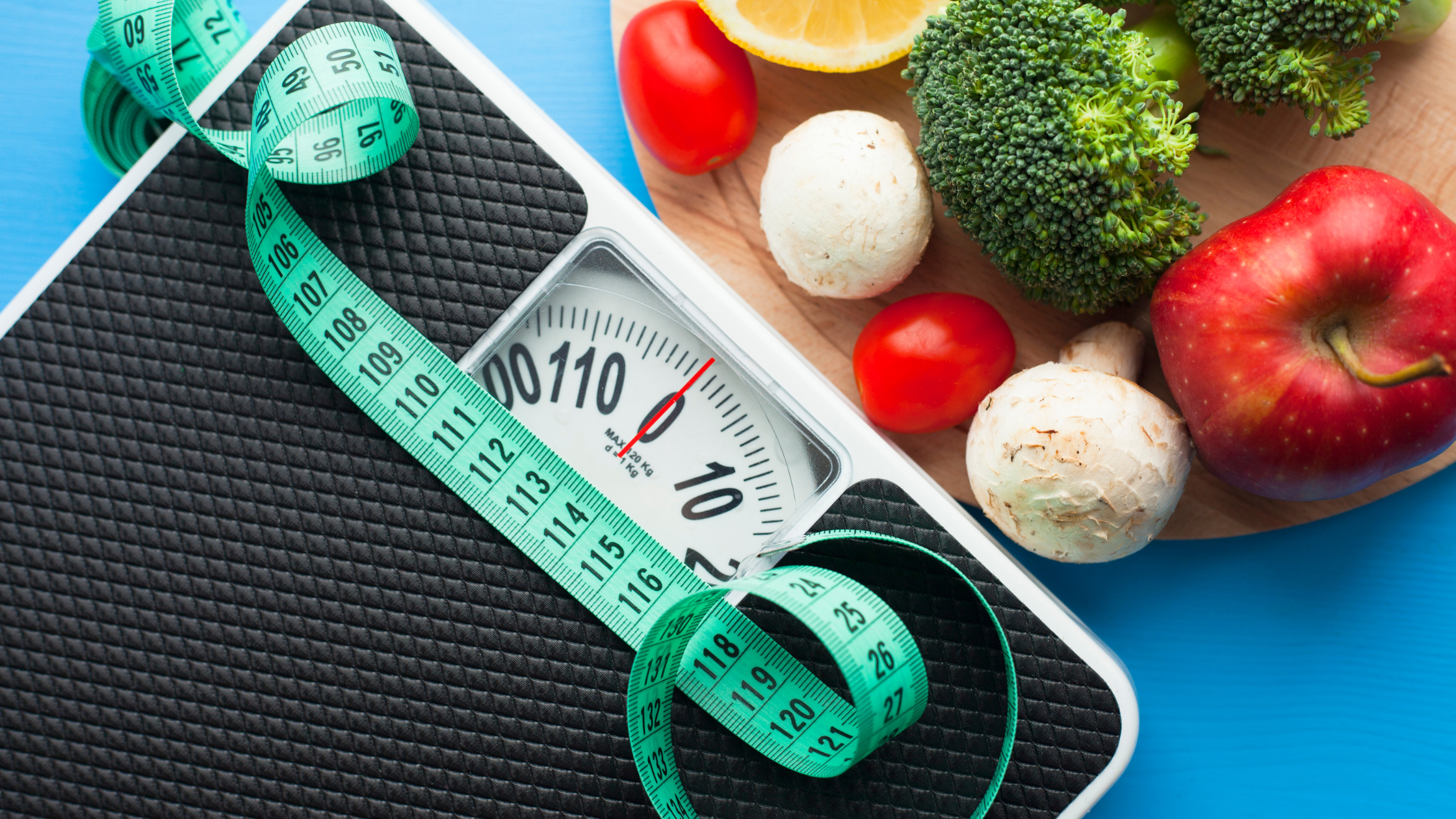Gut health has gained recognition as a key factor in overall wellness. The digestive tract hosts billions of microbes that are vital for digestion, metabolic processes, and immune function. But did you know that a healthy gut can also be a critical factor in effective weight management? Research has shown that maintaining a balanced gut microbiome can help regulate appetite, reduce cravings, and improve metabolism, all of which contribute to sustainable weight loss. In this article, we’ll explore the best foods for gut health and weight loss and how adding them to your diet can help you achieve your health goals while feeling your best.
By nourishing your gut with the right foods, you’re taking a significant step toward losing weight and enhancing your overall health and well-being. Let’s dive into how you can transform your diet with these gut-friendly foods to support your weight loss journey.
The Role of Gut Health in Weight Management
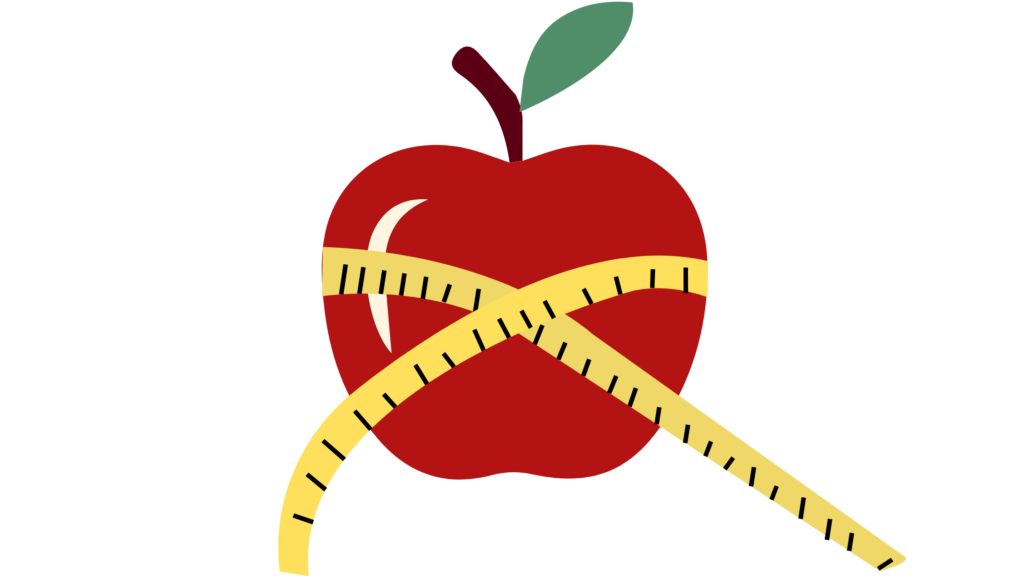
Emerging research highlights the vital link between gut health and weight regulation, emphasizing its importance in attaining and sustaining a healthy body weight. Often called the “second brain,” the gut significantly impacts various bodily functions, including digestion and metabolism. The gut microbiome, a diverse ecosystem of billions of bacteria in your digestive tract, significantly influences food processing, fat storage, and appetite control.
A balanced gut microbiome helps regulate essential hormones like ghrelin and leptin, which control hunger and fullness. When these hormones function properly, they signal your brain when you are full, helping to prevent overeating. However, an imbalance in gut bacteria—often a result of a diet high in processed foods and low in fiber—can lead to:
- Increased inflammation and insulin resistance
- Disruption in hunger hormones, causing increased appetite and cravings for sugary and fatty foods
- Altered gut-brain communication, further influencing food choices and eating behaviors
Additionally, your gut microbiome affects how your body extracts and stores energy from the foods you eat. Certain types of bacteria are more efficient at breaking down food and absorbing calories, which can lead to increased fat storage if the balance is not sufficiently maintained. A plant-based diet rich in fiber helps promote a diverse, healthy gut microbiome, potentially enhancing metabolism, lowering inflammation, and facilitating natural weight loss processes.
Prioritizing gut health in your weight management strategy can facilitate weight control while enhancing overall wellness. The following section will detail foods that benefit gut health and support weight loss efforts.
Top Foods for Gut Health and Weight Loss
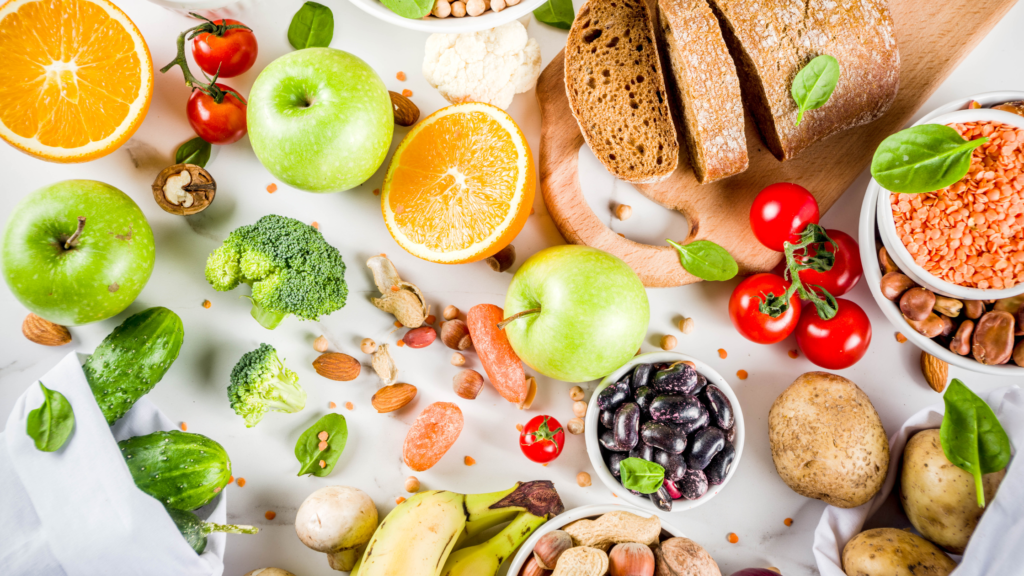
Choosing the right plant-based foods can significantly impact both your gut health and weight loss journey. By incorporating foods that support a diverse and balanced gut microbiome, you can enhance digestion, boost metabolism, and promote a healthier weight. Here are some of the best plant-based foods that can help you with gut health and weight loss:
Fiber-Rich Foods
Prioritizing gut health in your weight management strategy can facilitate weight control while enhancing overall wellness. The following section will detail foods that benefit gut health and support weight loss efforts. Some of the best fiber-rich plant-based foods include:
- Oats: A great source of beta-glucan, a soluble fiber that supports healthy gut bacteria and helps regulate blood sugar levels.
- Lentils and Chickpeas: Fiber-rich and high in protein, these legumes are excellent for keeping you full and promoting a healthy gut.
- Berries: Packed with fiber and antioxidants, berries like raspberries, blueberries, and strawberries are great for your gut and your waistline.
- Apples: Rich in pectin, a type of soluble fiber with prebiotic effects, helping feed the good bacteria in your gut.
Fermented Foods
Fermented foods are a fantastic way to introduce beneficial probiotics into your gut, improving digestion and enhancing your gut microbiome’s diversity. These foods undergo a natural fermentation process, creating live bacteria that are good for your gut health. The inclusion of fermented foods in your diet can help reduce bloating, improve digestion, and even support weight loss. Some popular plant-based fermented foods include:
- Sauerkraut and Kimchi: These probiotic-rich, high-fiber foods promote gut health through fermented vegetable content.
- Kombucha: Probiotic-rich fermented tea that aids digestion and supports gut health.
- Tempeh: A fermented soybean product that is an excellent source of plant-based protein and contains probiotics to support gut health.
Prebiotic Foods
Prebiotics are indigestible fibers that nourish and promote the growth of beneficial gut bacteria. Including prebiotic foods in your diet can enhance the growth of good bacteria and improve your gut health, aiding in weight loss. Some excellent prebiotic plant-based foods are:
- Garlic and Onions: Inulin-rich vegetables that function as prebiotics, promoting gut health.
- Asparagus: High in inulin, asparagus provides both fiber and prebiotics to support a healthy gut.
- Bananas: Bananas, especially when slightly unripe, contain high levels of resistant starch – a prebiotic that may increase fullness and curb hunger.
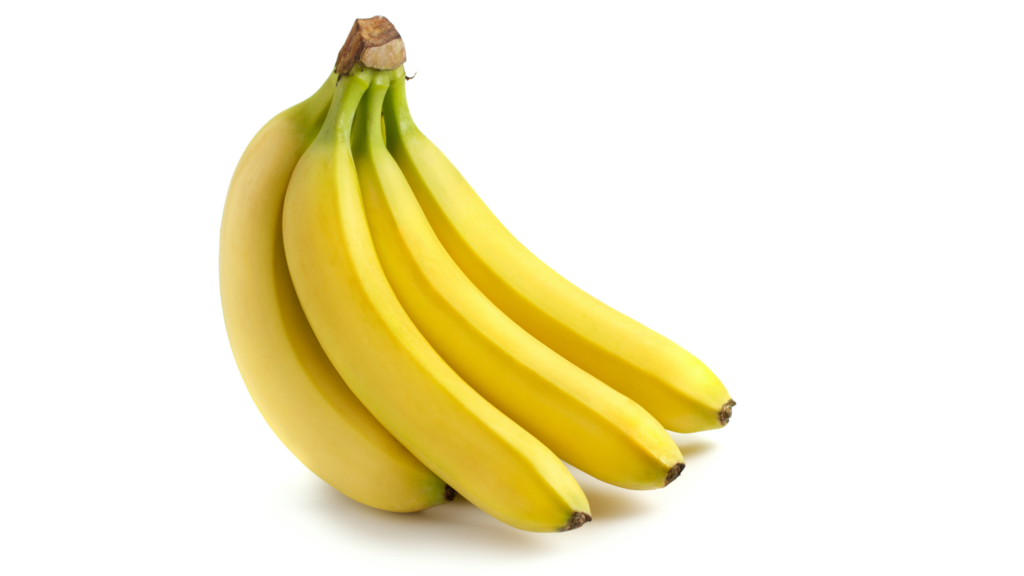
Polyphenol-Rich Foods
Polyphenols are compounds found in certain foods that act as antioxidants and support gut health by promoting the growth of beneficial bacteria. Foods rich in polyphenols can help reduce inflammation, improve digestion, and support weight loss by enhancing your gut microbiome. Key polyphenol-rich plant-based foods include:
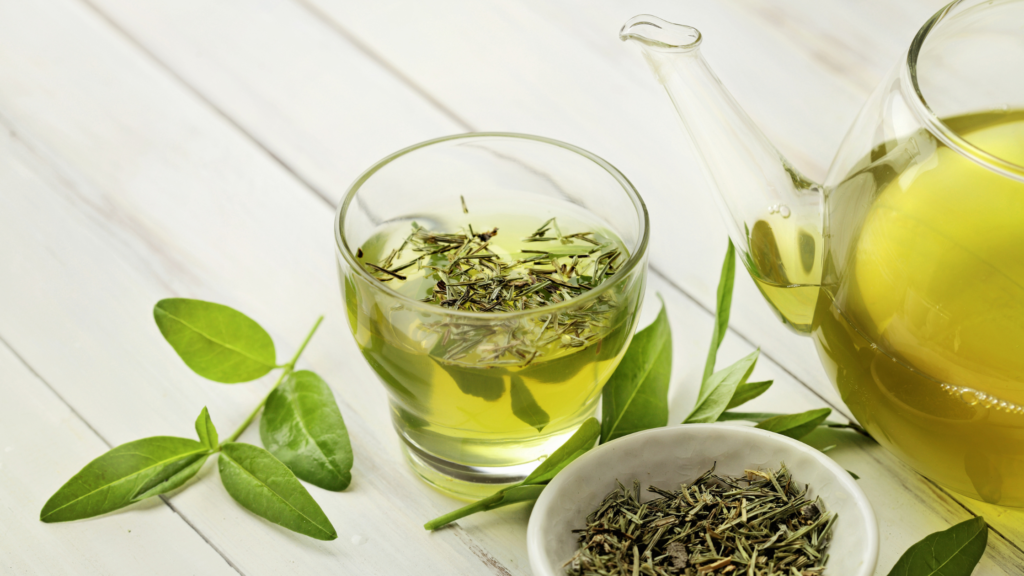
- Green Tea: Antioxidant-rich beverage that supports gut microbiota and may enhance fat metabolism.
- Dark Chocolate: Dark chocolate (high cocoa content), eaten moderately, offers polyphenols that promote beneficial gut bacteria growth and may boost metabolic health.
- Berries: High in fiber and polyphenols, offering anti-inflammatory properties and gut health benefits.
Plant-Based Proteins
Plant proteins support digestive health and promote a balanced gut microbiome. They provide essential nutrients without the added fats and processed elements often found in animal products, making them ideal for weight loss and gut health. Some excellent plant-based proteins include:
- Tofu and Tempeh: Both are made from soybeans and are high in protein and fiber, supporting muscle maintenance and a healthy gut.
- Lentils and Quinoa: Fiber-rich plant proteins that support digestion and gut microbiome balance.
Integrating these plant-based foods can enhance gut health and facilitate weight management. A diet diverse in fiber, fermented foods, prebiotics, polyphenols, and plant proteins nurtures your gut microbiome, promoting sustainable weight management.
In the next section, we’ll explore which foods to avoid to maintain a healthy gut and promote weight loss.
Foods to Avoid for Optimal Gut Health and Weight Loss
Incorporating gut-friendly, plant-based foods is crucial for enhancing gut health and aiding weight loss. It’s equally important to be mindful of the foods that can harm your gut microbiome and hinder your weight loss efforts. Certain foods can disrupt the balance of good bacteria in your gut, lead to inflammation, and contribute to weight gain. Here are some foods to limit or avoid for optimal gut health and weight management:
Refined Sugars and Artificial Sweeteners
Refined sugars and artificial sweeteners can have a detrimental effect on gut health. Excess sugar consumption can fuel harmful gut bacteria growth, potentially causing microbial imbalance (dysbiosis). This imbalance can cause inflammation and has been linked to obesity and metabolic disorders. Artificial sweeteners in “diet” products may disrupt gut microbiome diversity, potentially contributing to weight gain and insulin resistance.
- Foods to Avoid: Sugary snacks, candies, soda, sweetened cereals, and foods containing artificial sweeteners like aspartame and sucralose.

Processed Foods
Processed foods include packaged snacks, fast food, frozen dinners, and processed plant-based alternatives with many additives and preservatives. These foods can lead to gut inflammation and increased fat storage because they often contain:
- Unhealthy fats, sugars, and additives that harm gut health
- Low fiber content, depriving beneficial gut bacteria
- Preservatives and artificial ingredients that disrupt microbial balance
Gluten-Containing Grains for Some Individuals
Gluten-sensitive individuals and those with celiac disease may experience gut inflammation and intestinal damage when consuming gluten-containing grains. This can result in impaired nutrient absorption and digestive distress. Even those without gluten sensitivity may find that heavily processed grains can be harder to digest and contribute to bloating and discomfort, disrupting gut health.
- Foods to Avoid or Limit: White bread, pasta, baked goods, and other products made from refined wheat flour. For some, even whole wheat and barley may need to be moderated.
Alcohol
Even moderate amounts of alcohol can impact gut health. Excessive alcohol can significantly harm the gut lining, negatively impact your gut microbiome, and lead to inflammation. Alcohol also increases gut permeability, often referred to as “leaky gut,” which allows toxins and harmful bacteria to enter the bloodstream, contributing to inflammation and weight gain.
High-fat, Fried Foods
Foods high in unhealthy fats, especially fried ones, can disrupt gut bacterial balance and lead to weight gain. Fried foods hinder proper digestion and often lead to bloating and discomfort. They are also calorie-dense and can contribute to excess calorie intake, which is counterproductive to weight loss efforts.
- Foods to Avoid: French fries, fried snacks, fried plant-based alternatives, and food prepared in large amounts of oil.
By minimizing your intake of these foods and consuming a diet rich in whole, plant-based options, you can benefit from a healthy gut microbiome and support your weight loss goals. Remember, a balanced gut not only aids in digestion but also helps regulate appetite and energy levels, enhancing your ability to maintain a healthy weight. Next, we’ll offer practical strategies for adding gut-friendly foods to your diet.
Tips for Incorporating Gut-Healthy Foods into Your Diet
Incorporating more gut-friendly, plant-based foods into your daily meals doesn’t have to be challenging. Simple dietary adjustments can yield tasty, nutritious meals that benefit gut health and weight management. Here are some practical tips to help you seamlessly add these beneficial foods to your diet:
Start Your Day with Fiber
Breakfast is a perfect opportunity to add fiber-rich foods to your diet, which are essential for feeding the good bacteria in your gut and keeping you full throughout the morning. One breakfast idea is oatmeal with fresh berries and chia seeds. You could also enjoy a smoothie made with spinach, bananas, and a handful of oats to boost your fiber intake.
Incorporate Fermented Foods into Snacks and Meals
You can boost probiotic intake by adding sauerkraut or kimchi to salads and bowls for gut health benefits. You can also sip on kombucha as a refreshing drink between meals or use tempeh as a protein-packed addition to stir-fries and wraps.
Opt for Whole Grains
Exchange refined grains for whole grains such as quinoa, brown rice, and farro. These grains are higher in fiber and contain prebiotics that help nourish your gut bacteria. Use whole grains as bases for salads, foundations for bowls, or side dishes for main meals. For a quick and easy meal, prepare a batch of quinoa or brown rice at the beginning of the week to use in various dishes.
Load Up on Vegetables
Vegetables are a powerhouse of nutrients and fiber essential for gut health. Try to fill half of your plate with a variety of colorful vegetables at most meals. Roasting or grilling veggies like asparagus, bell peppers, and zucchini can bring out their natural flavors. Adding garlic and onions, which are prebiotic-rich, to your cooking can further enhance your gut health.
Snack Smart with Prebiotic Foods
Instead of reaching for processed snacks, choose prebiotic-rich options that nourish your gut bacteria. Sliced bananas with a little almond butter, a handful of raw nuts, or hummus with raw veggies like carrots and celery are all great choices. These snacks offer fiber and key nutrients, avoiding added sugars and unhealthy fats common in processed options.
Experiment with Plant-Based Proteins
A variety of plant proteins can enrich meals, deliver key nutrients, and ease digestion. Try different types of beans, lentils, tofu, and tempeh in your cooking. Lentil soup, chickpea salads, and tofu stir-fries are all easy ways to include these proteins in your diet. Combine these proteins with whole grains and plenty of vegetables for a hearty and gut-friendly meal.
Drink Plenty of Water
Adequate hydration is crucial for maintaining digestive health. Proper fluid intake ensures smooth digestive function and supports efficient nutrient transport throughout the body. Aim to drink at least eight glasses of water daily, and consider herbal teas, which can also support digestion.
Slowly integrating these gut-friendly foods and practices into your daily life can help promote a diverse and balanced gut microbiome, enhance your digestion, and aid in weight loss. Start with small changes and build up, finding ways to enjoy and savor these nutritious foods. Maintaining consistency is crucial for achieving long-term improvements in gut health and overall wellness.
In the final section, we’ll summarize the key takeaways and how you can start your journey to better gut health and weight management today.
Conclusion
Improving gut health supports sustainable weight loss and overall wellness. Focus on a diet rich in:
- Fiber
- Fermented foods
- Prebiotics
- Polyphenols
- Plant-based proteins
These nutrients nourish your gut microbiome and enhance your body’s natural weight management abilities.
At the same time, avoiding foods that disrupt gut health, such as refined sugars, processed foods, excessive alcohol, and high-fat fried foods, will help maintain a balanced and diverse gut environment.
Make these changes gradually:
- Add more vegetables to meals
- Choose whole grains over refined ones
- Replace sugary snacks with fiber-rich fruits
Start with small, manageable adjustments. Over time, these habits will become routine, fostering gut health and supporting weight loss goals.
The path to better health focuses on nourishing your body with foods that optimize your well-being, not strict diets or deprivation. By prioritizing your gut health, you are taking a holistic approach to wellness that helps you achieve a healthy weight and enhances your energy levels, mood, and overall quality of life.
Start incorporating these gut-friendly foods today and notice the positive changes in your body and mind. A healthier gut is within reach, and with it, a healthier you.
We would love to hear about your experiences and your tips for success in the comments below, and let’s build a community focused on better gut health and well-being together!

